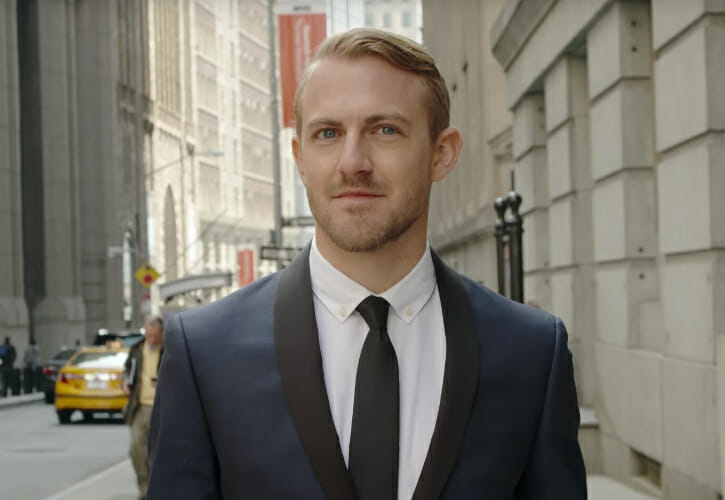Sri Lanka restricted access to social media following a terror attack that left more than 200 people dead and Girls in the Night Trafficat least 450 injured. Eight bombs exploded in three churches and three luxury hotels on Easter Sunday.
According to The New York Times, restricted sites include Facebook, Facebook Messenger, Instagram, WhatsApp, Viber, and YouTube.
"This was a unilateral decision," presidential adviser Harindra Dassanayake told the Times, explaining officials worried that the spread of misinformation and hate speech could incite violence.
The move isn't a first for the country — in 2018, Sri Lankan officials blocked access to social media when viral posts on Facebook called for violent attacks against Muslim communities, provoking riots. The New York Timesreport notes that Facebook did not respond to the government's request for better content moderation until it cut off the social network entirely.
Other countries struggle with viral, violent misinformation on social media as well and resort to similar measures — India restricted access to Facebook in 2012 in wake of rioting, and in 2019, rumors on WhatsApp were linked to multiple attacks.
Sri Lankan officials have not yet announced when the government will restore access to social media again.
Topics Facebook WhatsApp
(Editor: {typename type="name"/})
 Which Side Are They On?
Which Side Are They On?
 Samsung announces data breach affecting undisclosed number of customers
Samsung announces data breach affecting undisclosed number of customers
 Pornhub traffic took a hit with Apple Watch Ultra reveal at iPhone 14 event
Pornhub traffic took a hit with Apple Watch Ultra reveal at iPhone 14 event
 iPhone 13 vs iPhone 14 price comparison: Which is the better value?
iPhone 13 vs iPhone 14 price comparison: Which is the better value?
 The Death of Media
The Death of Media
In the House of a Thousand Likes
 Zachariah Webb ,February 16, 2018 In the H
...[Details]
Zachariah Webb ,February 16, 2018 In the H
...[Details]
Apple announces iPhone 14 and iPhone 14 Plus
 Apple's new iPhones are here.At an event in Apple's corporate headquarters in Cupertino, California
...[Details]
Apple's new iPhones are here.At an event in Apple's corporate headquarters in Cupertino, California
...[Details]
Eggs are taking over TikTok, thanks to the world record egg
 TikTok users are having an eggcellent time. Since a photo of a normal, everyday egg broke Kylie Jenn
...[Details]
TikTok users are having an eggcellent time. Since a photo of a normal, everyday egg broke Kylie Jenn
...[Details]
Apple announces updated second
 If the new Apple Watch Series 8 and newly introduced Apple Watch Ultra are just a bit too much for y
...[Details]
If the new Apple Watch Series 8 and newly introduced Apple Watch Ultra are just a bit too much for y
...[Details]
The Miseducation of <i>Lady Bird</i>
 Lauren Oyler ,November 15, 2017 The Misedu
...[Details]
Lauren Oyler ,November 15, 2017 The Misedu
...[Details]
8 winter pranks that'll make you weep icicles
 Winter is basically a long April Fools' celebration. With the arrival of ice and snow comes the "com
...[Details]
Winter is basically a long April Fools' celebration. With the arrival of ice and snow comes the "com
...[Details]
Stephen King's take on the Trump shutdown is as blunt as you'd expect
 Stephen King is certainly not one to mince his words -- and that goes double when it comes to Trump.
...[Details]
Stephen King is certainly not one to mince his words -- and that goes double when it comes to Trump.
...[Details]
All the best signs from Women's March events around the country
 The Women's March is back for its third year, and despite several layers of controversy surrounding
...[Details]
The Women's March is back for its third year, and despite several layers of controversy surrounding
...[Details]
Faster, Higher, Stronger, More Harmonious
 Martin Fritz Huber ,February 5, 2018 Faste
...[Details]
Martin Fritz Huber ,February 5, 2018 Faste
...[Details]
Apple event upgrades hard sell on iPhone, Watch, Airpods
 Once upon a time, back in 2019, new iPhone launch day meant Tim Cook and his handpicked lieutenants
...[Details]
Once upon a time, back in 2019, new iPhone launch day meant Tim Cook and his handpicked lieutenants
...[Details]
接受PR>=1、BR>=1,流量相当,内容相关类链接。